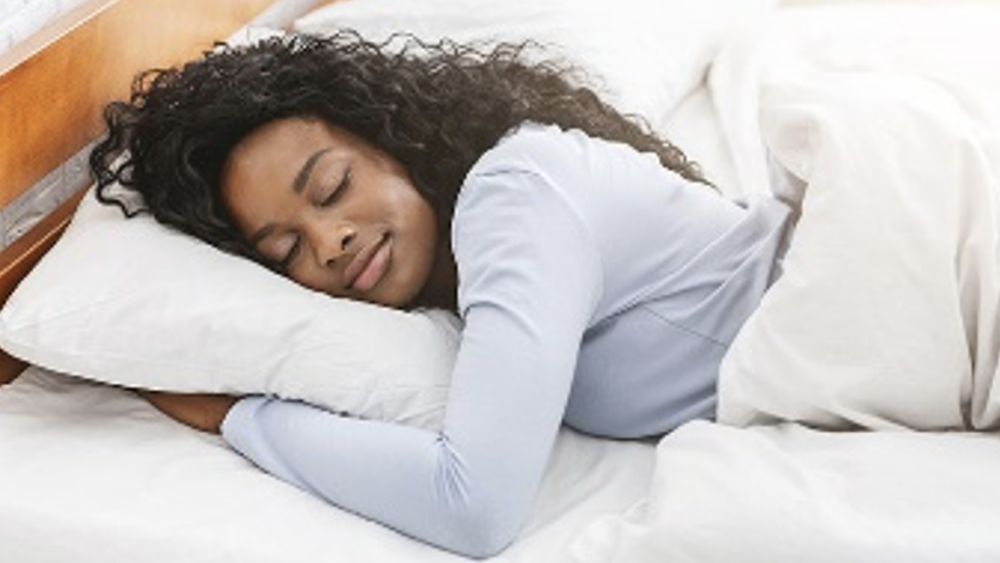On March 11, 2022, people across the country, and the globe, moved their clocks ahead one hour to Daylight Saving Time, which marked the end of brighter mornings and darker evenings. A few days later, the U.S. Senate voted to make daylight saving time permanent year round, but not everyone agrees.
Those in favor for a permanent switch to daylight saving time say that brighter afternoons will make people more productive, well rested and happier, and will lead to more consumer spending and energy savings.
Those against a permanent switch argue that standard time (with its brighter mornings and darker evenings), is more in line with the body’s natural clock and changing this will lead to unintended health consequences such as obesity, depression and cardiovascular issues.
While the debate continues and awaits a vote by the House of Representatives, below are some common sleep myths that may be keeping you from getting a good night’s rest.
Myth #1: If you lie in bed long enough, you’ll fall asleep
When it comes to sleep no-no’s, experts say this is the big one. Lying in bed, even with your eyes closed, for more than 15-20 minutes is one of the worst things you can do because it will train your brain to associate the bed with a lack of sleep. According to sleep experts, you want the bed to be like your favorite restaurant, where you walk in and you start getting hungry. You want the bed to do that for sleep – when you lie down you start getting drowsy.
Myth #2: You shouldn’t check your phone if you wake in the night
Yes! Banning smartphones (or any device that emits blue light) from the bedroom an hour or so before bed, and all through the night, is a must for good slumber. Light tells the body to stop producing melatonin, the body’s natural sleep aid, and blue light is especially toxic to sleep. So if you get out of bed after 20 minutes of sleeplessness or wake during the night, avoid watching TV or checking social media. Instead, do something mindless or practice deep breathing techniques.
Myth #3: You shouldn’t let the dog or cat sleep in your bed
Actually, it depends. In some cases, people with anxiety, depression, or post-traumatic stress may benefit from having a bed buddy that helps to foster sleep. Children, too, may sleep just as well with a pet accompanying them. But people who are light sleepers may find their sleep disturbed by too many “micro-wakenings,” which can be harmful to health. In those cases, pet owners may find they need to keep pets on the floor at night.
Myth #4: Exercising in the evening will disrupt sleep
Exercise at any time is better than not exercising at all. Not only does exercise have many health benefits, but it helps with stress reduction, which aids sleep. Studies have shown that people who exercised for 35 minutes right before bed slept as well as they did on nights when they didn’t exercise at all. Of course, if working out at night does affect your sleep, experts suggest exercising early in the evening so your heart rate and body temperature can return to normal before you hit the pillow.
Myth #5: You can catch up on sleep on the weekends
We have all fallen for this one. Unfortunately, the science says we’re wrong. We may feel better after sleeping in on Saturday or Sunday morning, but it is detrimental to our overall sleep. By changing your bedtime and wake-up time on weekends, or day to day for that matter, your sleep rhythms aren’t predictable, which can alter the body’s circadian rhythm. The brain likes regularity and predictability, so going to bed and getting up around the same time each day will give you increased energy and improve your mood.
Information adapted from cnn.com, nytimes.com and local10news.com

MOLLIE STEINER, M.S.
FitBiz – Show your employees that you care about their health and empower them to make positive choices. Whether you choose one program or several, your investment will benefit both your employees and your bottom line.
Call Mollie Today: 614.410.4553



Comments are closed.